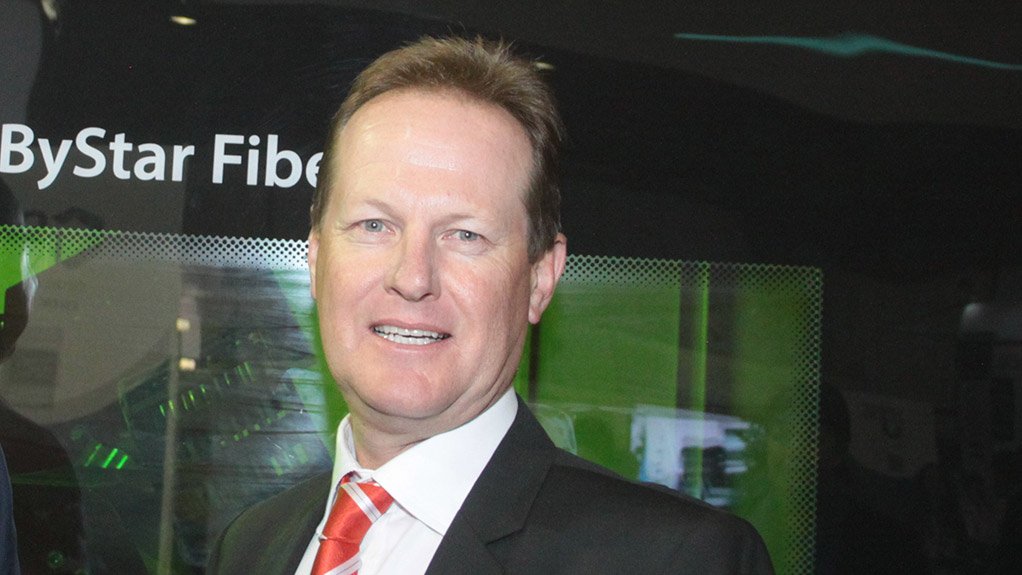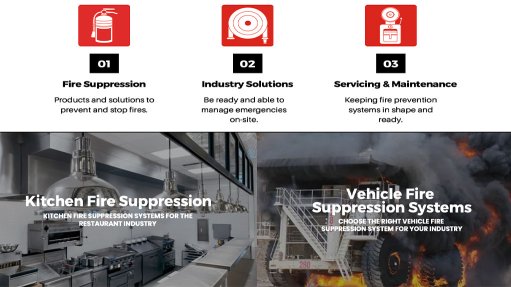Rapid adoption of automation critical for local steel industry


ANDREW POOLE The South African steel industry must keep up with Industry 4.0 automation trends to remain competitive in the global market
The rapid rate at which automation technology is progressing globally presents a challenge for South African industry, which needs to keep pace with the latest developments in automated capital equipment, says South African capital equipment and cutting consumables distributor First Cut.
The company states that, owing to this, local steel and fabrication companies need to get behind Industry 4.0 – a global trend towards increasingly integrated automation. This has made manufacturing more efficient, cost-effective and profitable, and is critical for South African companies – if they want to remain competitive in the global market. Steel companies that are investing in the latest automation upgrades have much better efficiency rates in terms of product quality and production speed and, as a result, can offer more competitive market prices.
First Cut MD Andrew Poole says companies that do not embrace the latest industry automation technology are at risk of going out of business – if they “don’t keep up, they will just not be able to compete”.
Automated technologies have revolutionised the steel industry and continue to advance rapidly. Poole points to fibre laser technology, which became prevalent in the global market some five years ago, as a form of auto- mated technology which has progressed significantly in the steel cutting industry.
He explains that, when the technology came onto the global market, it operated at a cutting strength and speed of 2 kW, but has since progressed to a high-powered 10 kW. This fibre laser, from First Cut principal Bystronic, delivers the highest part output through the full spectrum of sheet thicknesses. Consequently, with the latest fibre laser steel cutting technology, cutting processes that took ten hours to complete can now be completed in two-and-a-half hours. “This is four times the efficiency, translated into every minute of every hour of every day, which represents huge cost savings.”
Poole notes that the continual development of fibre laser technology is a challenge for capital equipment investors and suppliers attempting to keep up with the global market. Local companies purchasing capital equipment have to deal with the daunting prospect that their massive capital investments in automated upgrades may become outdated and uncompetitive.
Poole sympathises, as investing in capi- tal equipment is costly and equipment is often sold in international currencies. With investor uncertainty in the socioeconomic climate and unfavourable exchange rates, investment in capital equipment in South Africa can be challenging, he adds.
However, First Cut assists clients continuously through every step of the automation process, Poole tells Engineering News. It ensures that clients make the investment choice that will benefit their organisation. The company also helps them to strategically plan the manufacturing ‘footprint’ or layout of their facilities and also the workflow of their fabrication processes, to ensure that the automated equipment in which they have invested is used to maximum efficiency. This includes assisting companies in fine-tuning their upstream and downstream processes, working with clients to upskill workforces to provide Level 1 technical support for automated operations, and up-to-the-minute technical assistance when needed.
First Cut prides itself on providing clients with fit-for-purpose solutions. As a result, the company often flies clients oversees to visit their international principals, in order to observe the technology in action and see the exact impact of certain automated processes on the production process.
Poole states that there has recently been a notable air of optimism about South Africa’s current socioeconomic outlook, which has boosted confidence in capital equipment investment. Should the positive socio- economic sentiment continue, he expects investment in capital equipment and the steel industry to grow.
Article Enquiry
Email Article
Save Article
Feedback
To advertise email advertising@creamermedia.co.za or click here
Press Office
Announcements
What's On
Subscribe to improve your user experience...
Option 1 (equivalent of R125 a month):
Receive a weekly copy of Creamer Media's Engineering News & Mining Weekly magazine
(print copy for those in South Africa and e-magazine for those outside of South Africa)
Receive daily email newsletters
Access to full search results
Access archive of magazine back copies
Access to Projects in Progress
Access to ONE Research Report of your choice in PDF format
Option 2 (equivalent of R375 a month):
All benefits from Option 1
PLUS
Access to Creamer Media's Research Channel Africa for ALL Research Reports, in PDF format, on various industrial and mining sectors
including Electricity; Water; Energy Transition; Hydrogen; Roads, Rail and Ports; Coal; Gold; Platinum; Battery Metals; etc.
Already a subscriber?
Forgotten your password?
Receive weekly copy of Creamer Media's Engineering News & Mining Weekly magazine (print copy for those in South Africa and e-magazine for those outside of South Africa)
➕
Recieve daily email newsletters
➕
Access to full search results
➕
Access archive of magazine back copies
➕
Access to Projects in Progress
➕
Access to ONE Research Report of your choice in PDF format
RESEARCH CHANNEL AFRICA
R4500 (equivalent of R375 a month)
SUBSCRIBEAll benefits from Option 1
➕
Access to Creamer Media's Research Channel Africa for ALL Research Reports on various industrial and mining sectors, in PDF format, including on:
Electricity
➕
Water
➕
Energy Transition
➕
Hydrogen
➕
Roads, Rail and Ports
➕
Coal
➕
Gold
➕
Platinum
➕
Battery Metals
➕
etc.
Receive all benefits from Option 1 or Option 2 delivered to numerous people at your company
➕
Multiple User names and Passwords for simultaneous log-ins
➕
Intranet integration access to all in your organisation



















